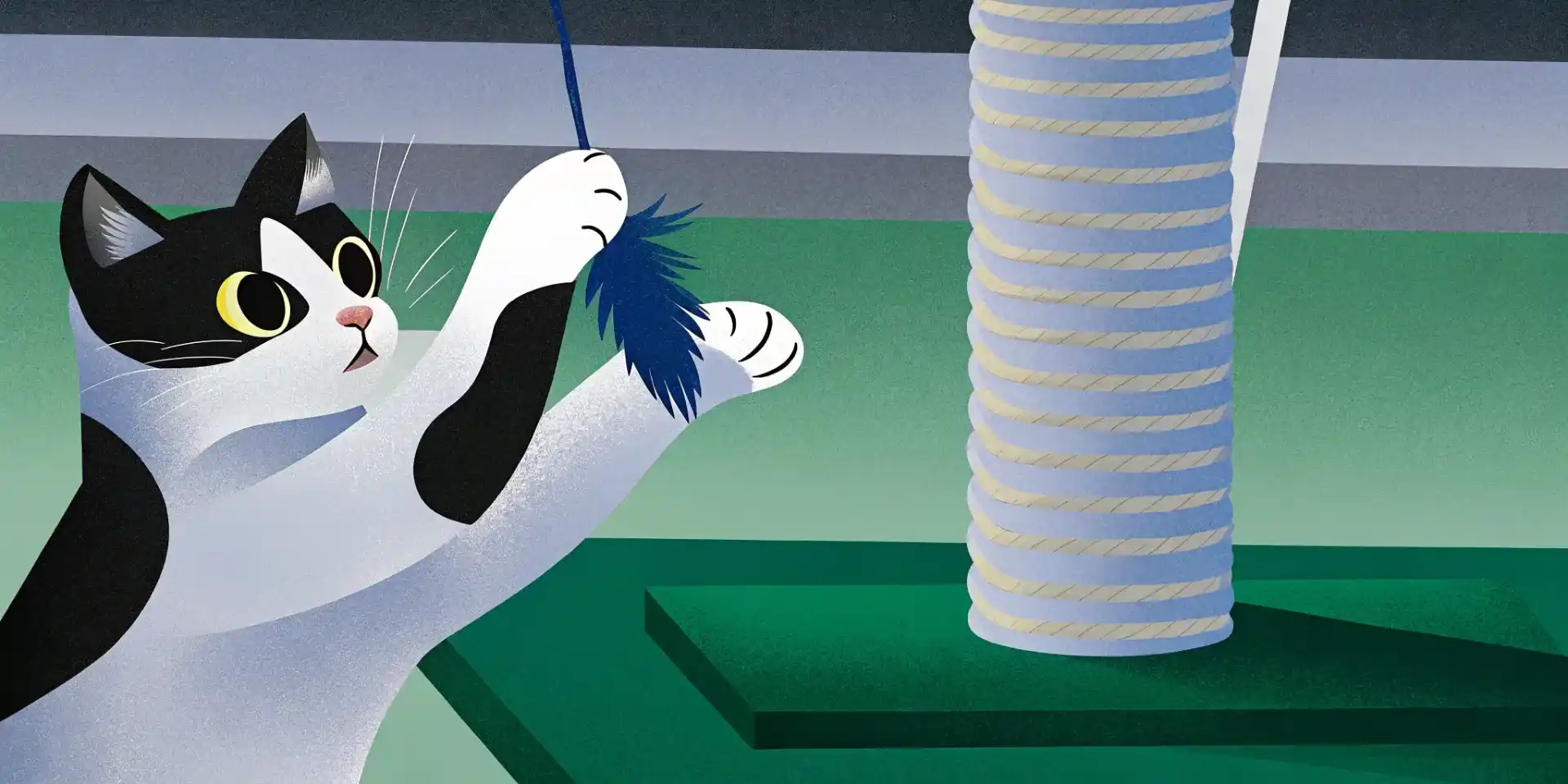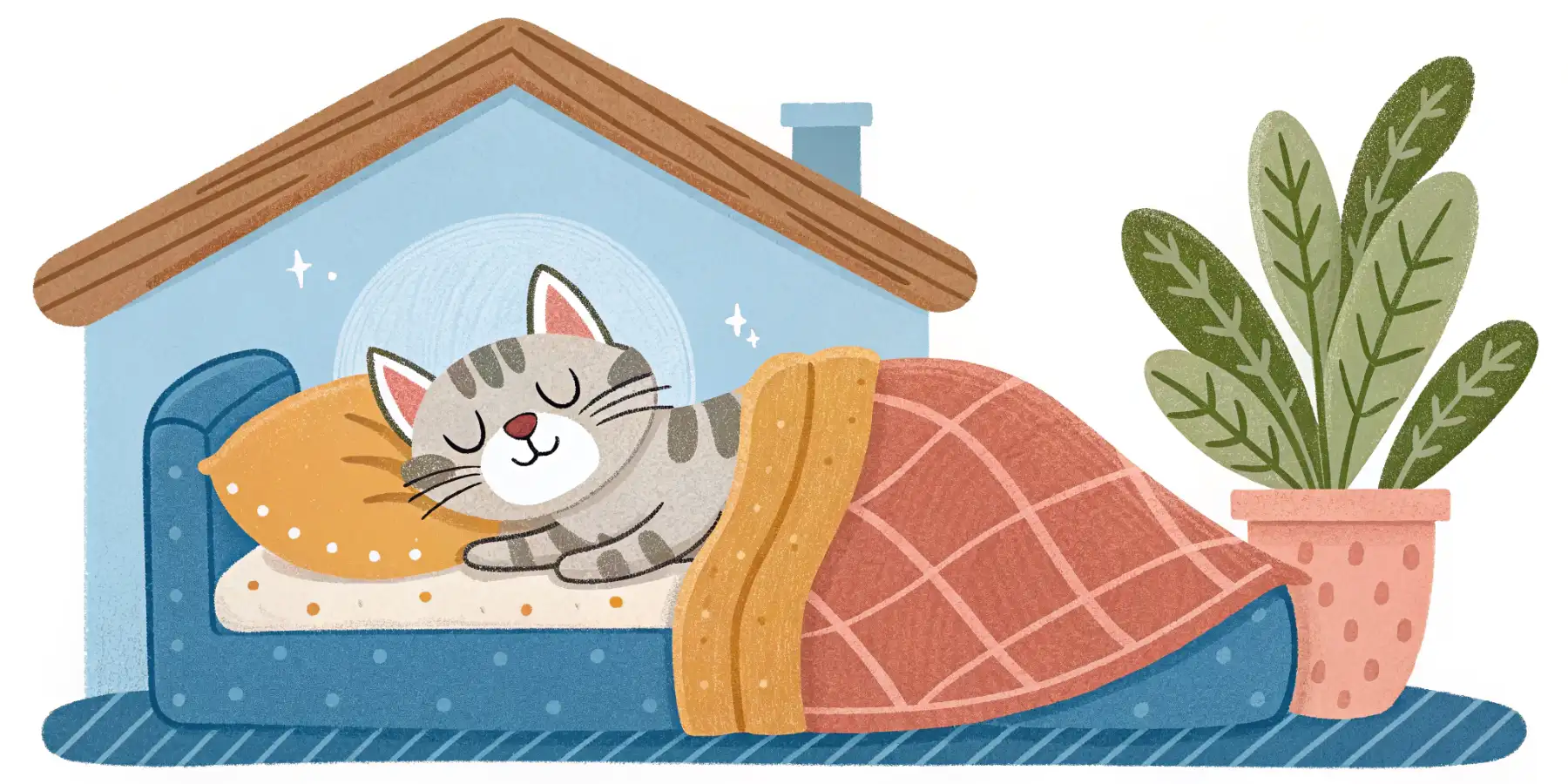
Stop Cat Scratching: Save Your Furniture!
Cat scratching driving you crazy? 🙀 Learn why they do it & how scratching posts can save your furniture! Click for tips!
Introducing Scratching Posts: Saving Your Furniture!
So, you brought a cat into your home, picturing idyllic evenings of purrs and cuddles. And you got that! But you also got something else: a feline ninja warrior hell-bent on shredding your favorite armchair. Sound familiar? Don’t despair! You’re not alone. Understanding and addressing your cat’s scratching behavior is key to a harmonious household. Scratching isn’t a sign of spite; it’s a natural, necessary, and even beneficial feline activity. Luckily, there’s a purr-fect solution: scratching posts!
Why Do Cats Scratch? It’s More Than Just Sharpening Claws
Before we dive into the how-tos of choosing and introducing scratching posts, let’s understand why cats scratch in the first place. It’s about more than just claw maintenance; it’s a complex behavior with several important functions:
-
Claw Maintenance: Yes, this is a factor. Scratching helps cats remove the dead outer layer of their claws, revealing the sharp, new claw underneath. Think of it as a kitty manicure!
-
Marking Territory: Cats have scent glands in their paws. When they scratch, they leave both a visual mark and a scent mark, communicating to other cats (real or imagined) that this is their territory. It’s like putting up a “Keep Out!” sign, but with purrs and a touch of feline finesse.
-
Stretching and Exercise: Scratching is a full-body workout for your cat! It allows them to stretch their muscles, particularly their back and shoulders. This is especially important for indoor cats who may not get as much physical activity as their outdoor counterparts.
-
Emotional Release: Sometimes, cats scratch simply because it feels good! It can be a way to relieve stress, anxiety, or even excitement. A good scratching session can be a cathartic experience for your feline friend.

A cat enjoying a full-body stretch while scratching on a tall, sisal scratching post.
Choosing the Right Scratching Post: Size, Material, and Placement Matter
Not all scratching posts are created equal. Choosing the right one can make all the difference in whether your cat uses it or continues to target your sofa.
-
Height: This is crucial. The scratching post needs to be tall enough for your cat to fully extend their body while scratching. I believe that a post that is too short is practically useless for an adult cat. Look for posts that are at least 30 inches tall, and even taller for larger breeds like Maine Coons.
-
Material: Sisal fabric or rope is generally the most popular and effective choice. It’s durable, provides a satisfying texture for scratching, and is less likely to be mistaken for something undesirable like carpet. Cardboard scratchers are also a good option, especially for cats who prefer a softer texture. Avoid carpeted scratching posts – they can encourage cats to scratch carpets elsewhere in your home!
-
Stability: A wobbly scratching post is a no-go. It needs to be sturdy enough to withstand your cat’s enthusiastic scratching without tipping over. Look for posts with a wide base or those that can be mounted to a wall.
-
Orientation: Some cats prefer vertical scratching posts, while others prefer horizontal ones. Experiment to see what your cat prefers. You can even offer both!
-
Placement is Paramount: The location of the scratching post is just as important as the post itself. Place it in an area where your cat already likes to scratch, near their sleeping area, or in a high-traffic area of your home. You want to make it easily accessible and appealing to your cat.
Introducing the Scratching Post: Making It Irresistible
Okay, you’ve got the perfect scratching post. Now, how do you convince your cat to use it?
-
Make it Attractive: Sprinkle a little catnip on the scratching post to entice your cat. You can also try rubbing it with catnip.
-
Positive Reinforcement: When you see your cat scratching the post, praise them and give them a treat. Positive reinforcement is key to encouraging the desired behavior.
-
Play Around It: Use a feather wand or laser pointer to lure your cat to the scratching post and encourage them to interact with it.
-
Move it Gradually: If your cat is already scratching a piece of furniture, try placing the scratching post directly in front of it. Gradually move the post away from the furniture over time.
-
Protect the Furniture: While you’re encouraging your cat to use the scratching post, protect the furniture they’re currently scratching. You can use sticky tape, plastic sheeting, or even aluminum foil to deter them. Cats generally dislike these textures. It’s crucial to combine this with offering an attractive alternative, like the scratching post. You aren’t just preventing an action; you’re redirecting it to a better one.
-
Patience is Key: It may take some time for your cat to start using the scratching post consistently. Be patient and persistent, and eventually, they’ll get the hang of it.

A playful cat batting at a toy dangling from a sisal scratching post, encouraging interaction and positive association.
What if My Cat Still Prefers the Furniture?
Don’t give up! Here are a few more tips to try:
-
Try Different Scratching Posts: If your cat isn’t using the current scratching post, try a different type or material. Experiment to see what they prefer.
-
Multiple Scratching Posts: Consider providing multiple scratching posts in different locations around your home. This can be especially helpful if you have multiple cats.
-
Trim Your Cat’s Claws: Regular nail trimming can help reduce the damage your cat can do to furniture, even if they still scratch it.
-
Consult with a Veterinarian or Behaviorist: If you’re still struggling to get your cat to use a scratching post, consider consulting with a veterinarian or certified cat behaviorist. They can help identify any underlying issues that may be contributing to the problem. In my experience, sometimes there are behavioral reasons for destructive scratching and veterinary advice is necessary.
A Scratching Post Success Story (Hypothetical)
Imagine Sarah, a devoted cat owner, struggling with her cat Whiskers’ relentless attacks on her brand-new velvet sofa. Frustrated, Sarah researched how to encourage my cat to use a scratching post, and learned the importance of height, material, and placement. She invested in a tall, sisal scratching post and strategically placed it near Whiskers’ favorite napping spot. She sprinkled catnip on it, played with Whiskers near it, and consistently praised him when he scratched it. Slowly but surely, Whiskers began to prefer the scratching post over the sofa. Sarah’s furniture was saved, and Whiskers had a healthy and satisfying outlet for his natural scratching instincts!

A happy cat using a sisal scratching post, receiving affection from its owner and reinforcing positive scratching behavior.
Conclusion: A Happy Cat, A Happy Home
Introducing scratching posts is an essential part of responsible cat ownership. By understanding your cat’s scratching behavior and providing them with the right scratching post, you can save your furniture, enrich your cat’s life, and create a more harmonious home for everyone. Remember, patience, persistence, and a little bit of catnip can go a long way! Happy scratching!


